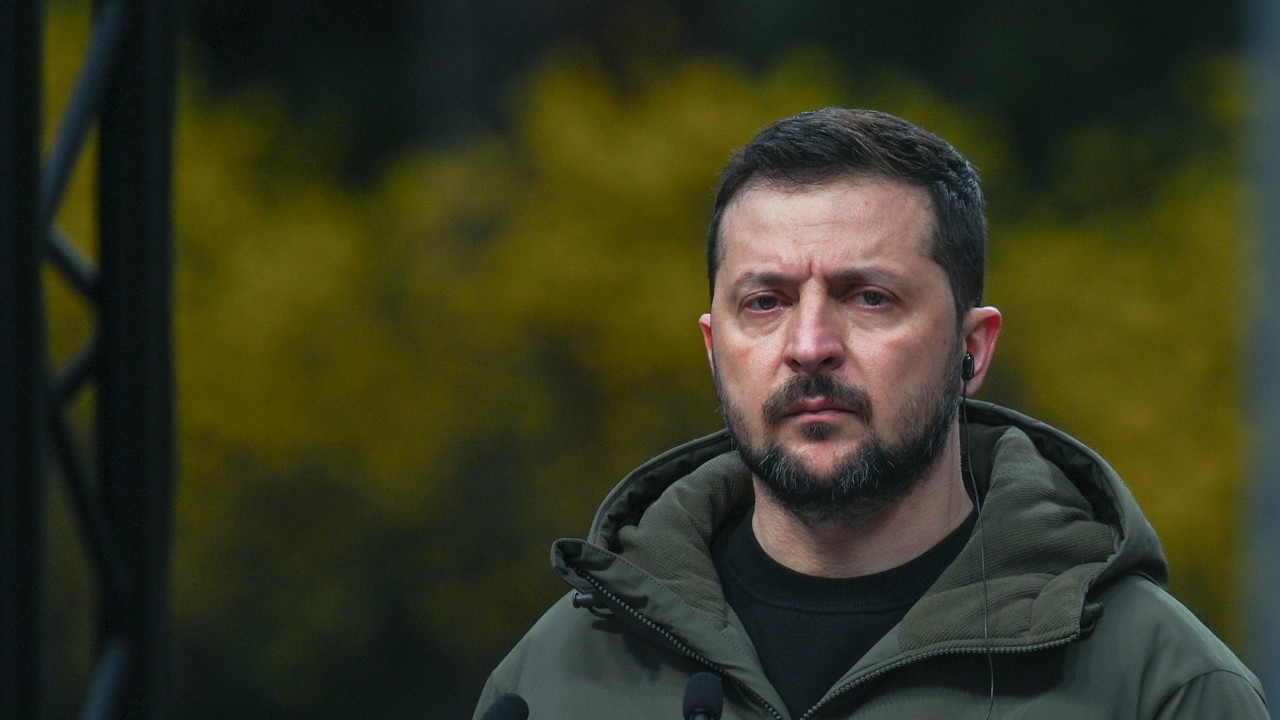
“AND A new package of sanctions from the European Union is necessary, and we are preparing it”, said Zelensky in a communication to the country on Saturday night, published via social media.
“We are also preparing new measures to limit Russia’s ability to circumvent sanctions. Any manifestation of pressure on Russia brings peace closer. Any manifestation of aid to Ukraine protects lives”, said the Ukrainian head of state.
In view of the European Union’s sanctions on Russia and Belarus, the heads of the customs services of Lithuania, Latvia and Estonia agreed, also on Saturday, to unify control over implementation, according to Lithuanian broadcaster LRT.
Through the agreement, which confirms the declaration signed by the prime ministers of the Baltic countries on December 20 last year, the customs authorities of the Baltic States agreed to strengthen controls on sanctioned goods exported to Russia and Belarus or transited through them to third countries.
In his communication to the country, Zelensky also referred to advances in the use of income from Russian assets frozen abroad in favor of Ukraine.
“This month, we have come closer to the decision we need, which will be fair. All Russian assets – the assets of the terrorist state (Russia) itself and its affiliates – which are in different jurisdictions and frozen, must be used to protect against Russian aggression,” Zelensky said.
“They must be confiscated. And we are doing everything to ensure that this decision is prepared in a meaningful way in the near future,” he emphasized.
Speaking to the Portuguese press in Brussels on January 22, when the heads of European diplomacy met, via digital means, with the Ukrainian Minister of Foreign Affairs, Dmytro Kuleba, the Portuguese Minister of Foreign Affairs indicated that revenues “in the order of 15 billion euros” with the use of such fixed Russian assets.
“[Quanto] to the debate that is taking place about Russia’s funds frozen due to sanctions, whether or not they can be used for the reconstruction of Ukraine, […] At the moment, there is no legal basis for this, but there is a political consensus regarding the use of the income from these frozen funds, which are already considerable”, said João Gomes Cravinho.
“It is a very significant amount and there is a political consensus regarding the use of the proceeds from the frozen funds to support Ukraine”, said Cravinho, explaining that “there is still some technical work left to do, which will be done over the next few days […]to determine exactly the mechanisms and processes”.
At the end of last year, the European Commission proposed an initiative to identify resources related to Russian sovereign assets frozen due to EU sanctions, with a view to using them for the reconstruction of Ukraine.
In an interview with the Lusa agency, released in mid-December, the president of the Eurogroup, Paschal Donohoe, said it was “very important that consideration” of the use of Russian goods “takes place in an international context”, namely in the G7 (the seven largest world economies plus the EU), arguing for “careful analysis”.
This measure — which initially envisaged full use of frozen Russian assets and now focuses on their income — comes at a time when the 27 EU member states (mainly Belgium) have already frozen more than 200 billion euros in Russian assets due to sanctions policy.
The Russian military offensive on Ukrainian territory, launched on February 24 last year, plunged Europe into what is considered the most serious security crisis since the Second World War (1939-1945).
Ukraine’s Western allies have supplied weapons to Kyiv and approved successive sanctions packages against Russian interests to try to diminish Moscow’s ability to finance the war effort.
Read Also: “It’s obvious that Russians are playing with the lives of Ukrainian hostages”
All News. By the Minute.
Eighth consecutive year Consumer Choice for Online Press.
Download our free App.
Source: https://www.noticiasaominuto.com/mundo/2489908/ucrania-zelensky-apela-a-novo-pacote-de-sancoes-da-ue-a-russia



